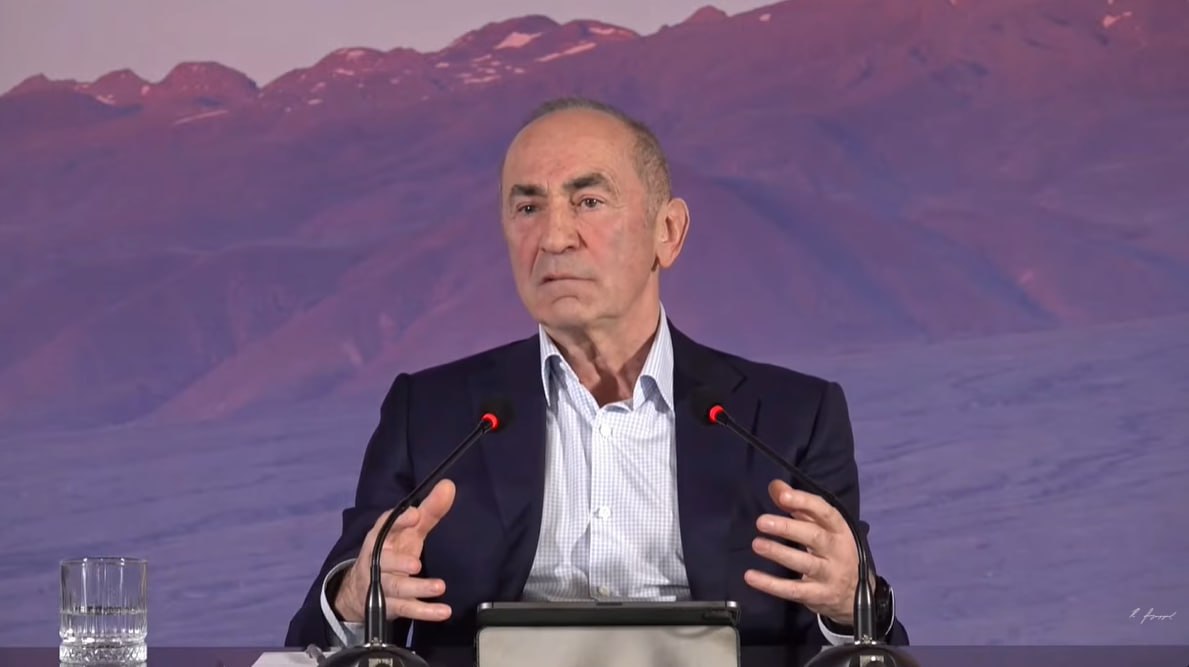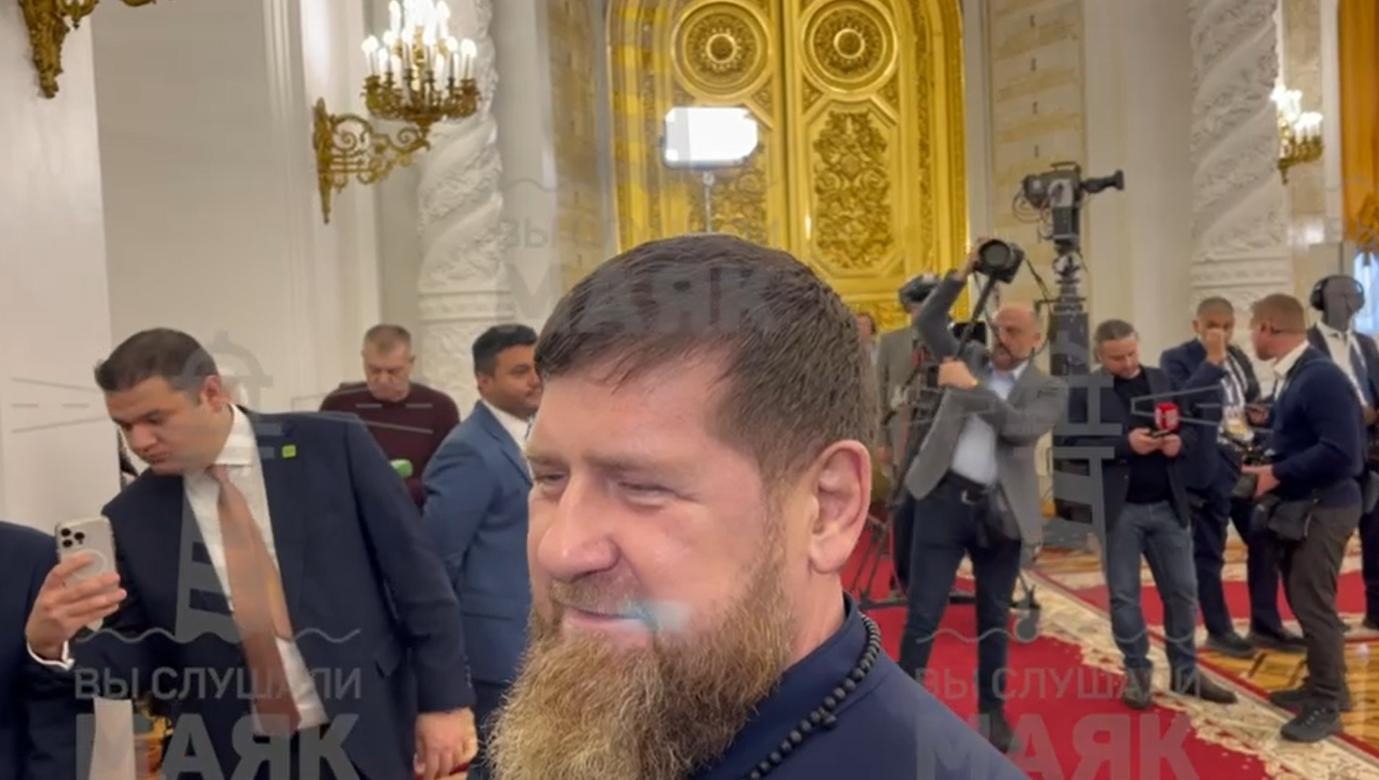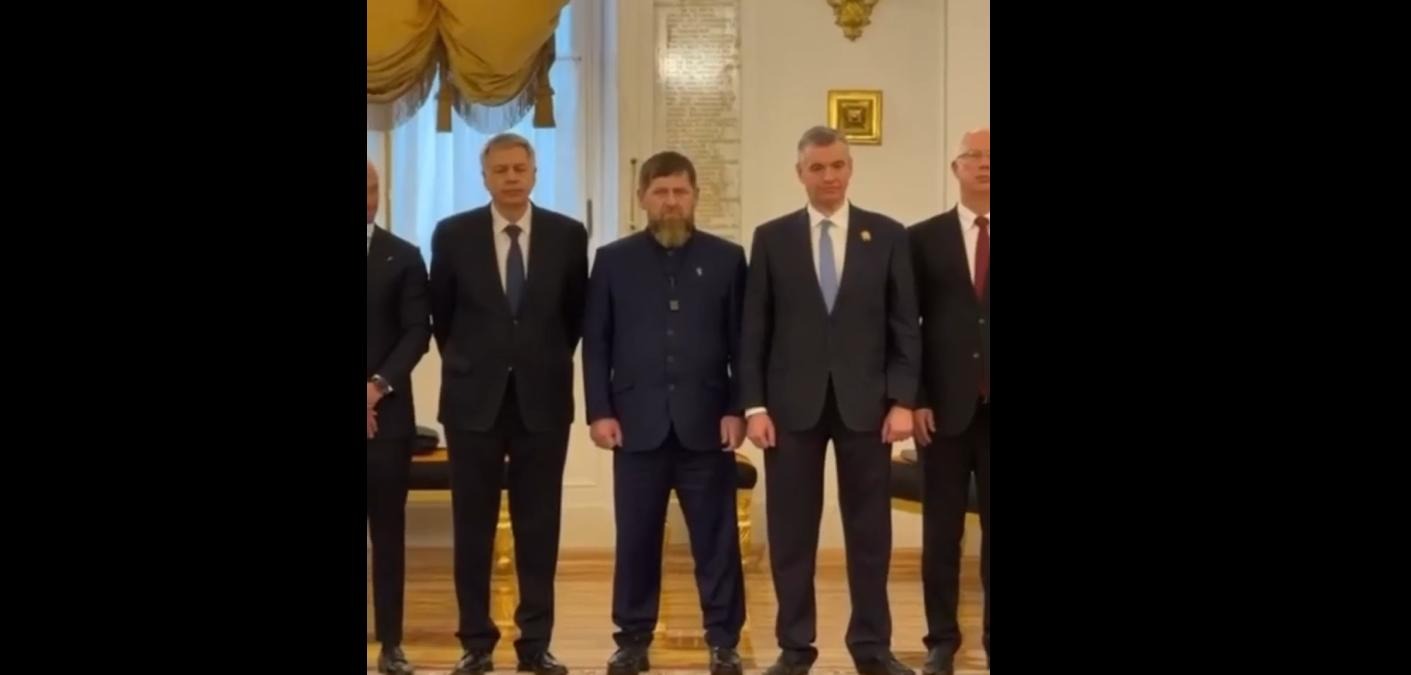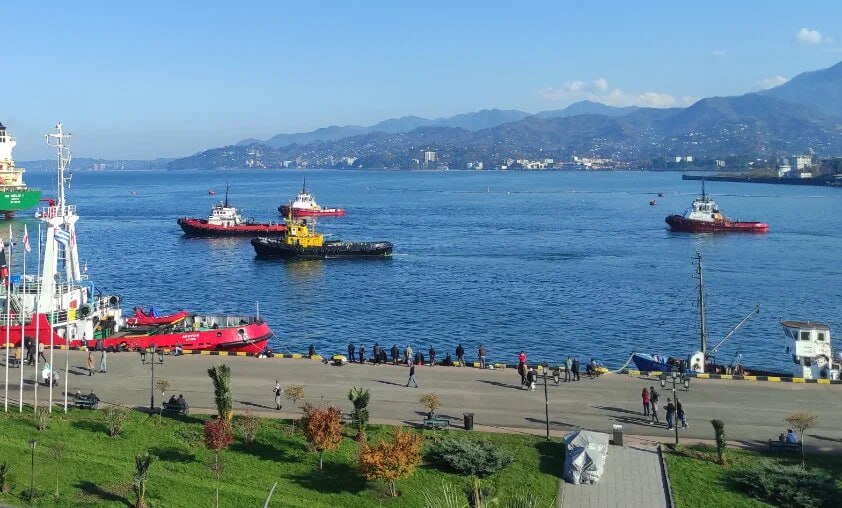Former Armenian President Robert Kocharyan warned against the current government's flippant attitude toward possible harsh responses from Moscow. He believes the authorities fail to grasp the scale of the potential impact Russia could have, including tariff revisions and export blockages.
On December 12, several hundred Azerbaijani citizens calling themselves environmental activists blocked traffic along the Lachin corridor, a highway connecting the Armenian city of Goris and the capital of the unrecognized Nagorno-Karabakh Republic, Stepanakert. A humanitarian catastrophe is brewing in Artsakh (the Armenian name for Karabakh).
The activists who blocked the road are demanding to be allowed into the territory occupied by Russian peacekeepers to conduct “environmental monitoring.” In particular, they are interested in the Gyzylbulag gold deposit and the Demirli copper-molybdenum deposit, where, in their opinion, “ecological terror” is taking place.
In Armenia, the actions of Azerbaijani citizens were called a “provocation” launched with the aim of putting pressure on the authorities and residents of Nagorno-Karabakh.
On December 13, Armenian President Vahagn Khachaturian wrote on Twitter: “By blocking the Lachin corridor, Azerbaijan has deprived more than 120 thousand people of vital access to Armenia and the rest of the world. On the second day, Artsakh is going through a new test; it faces the question of survival. An urgent and focused response from the international community is needed.”
And such a reaction followed: the European Union and the United States appealed to the Azerbaijani authorities to ensure free and safe movement along the corridor; later the same position was expressed by the UN Security Council and the European Court of Human Rights.
On December 22, Armenian Prime Minister Nikol Pashinyan said that Russian peacekeepers are not fulfilling their obligations in the Lachin corridor. “Of course, this is happening as a result of the illegal actions of Azerbaijan, but this does not change the situation, because the main goal of the presence of Russian peacekeeping forces is to prevent such lawlessness and keep the Lachin corridor under control,” the prime minister said.
Russian Presidential Press Secretary Dmitry Peskov responded to this criticism by saying that “Russian peacekeepers are acting in full compliance with the tripartite statement of November 9, 2020.”
The Russian peacekeeping contingent (RPC) was deployed along the contact line in Nagorno-Karabakh and along the Lachin corridor in accordance with trilateral agreements between Armenia, Azerbaijan and Russia, signed on November 9, 2020, after the escalation of the Karabakh conflict. According to the agreements, the RMK should consist of 1,960 military personnel with small arms, 90 armored personnel carriers, 380 units of automobile and special equipment and ensure a ceasefire in the region.
According to the Russian Ministry of Defense, “the command of the Russian peacekeeping contingent continues to conduct negotiations with the Azerbaijani and Armenian sides to stabilize the situation and resume road traffic on the Stepanakert-Goris road.”
On December 27, during a visit to the informal CIS summit in St. Petersburg, Nikol Pashinyan again reminded Russian President Vladimir Putin of the obligations assumed by Russia.
“You know, the Lachin corridor has been blocked for almost 20 days. This is the area of responsibility of Russian peacekeepers in Nagorno-Karabakh. I would like to remind you that, according to the tripartite statement of the President of the Russian Federation, the President of Azerbaijan and the Prime Minister of Armenia, the Lachin corridor should be under the control of Russian peacekeepers. The Republic of Azerbaijan guaranteed unimpeded passage of passengers, cargo and people along the Lachin corridor. Now it turns out that the Lachin corridor is not under the control of Russian peacekeepers. Of course, I would like to discuss this situation and clarify what options are available.” The results of this conversation are not reported.
In Baku, the events are commented on as follows: the Azerbaijani authorities agreed with the command of the Russian peacekeeping contingent that environmentalists will begin monitoring in the area of the deposits where Armenia, in their assessment, was conducting illegal mining. However, the leadership of Karabakh did not give permission for this inspection. Azerbaijani Foreign Minister Jeyhun Bayramov, after a meeting in Moscow with Sergei Lavrov, said that activists “have no intention of impeding the passage of cargo, goods, vehicles and citizens.” “Even purely hypothetically, if you imagine that today some citizens want to drive there in their vehicles and they have some kind of psychological constraint in this matter,” they, according to Lavrov, can turn to Russian peacekeepers to guide them along a blocked section of the road.
In Yerevan they believe that environmental problems are nothing more than an excuse for politicians. “This is an attempt at psychological pressure - people are blocked in Artsakh, they are running out of food, many humanitarian problems arise that affect the local population, stimulating their outflow,” Armenian political scientist Johnny Melikyan noted in an interview with RBC. “If there is no critical mass of the population in Nagorno-Karabakh, then peacekeepers will not be needed to protect them. Those who remain will be forced to accept the rules of the game that Baku imposes: no status, no special privileges.”
According to the expert, Baku’s actions are also related to the fact that it was unable to obtain the so-called Zangezur corridor, a transport route project promoted by Azerbaijan that would pass through Armenia and connect Azerbaijan with its exclave, the Nakhchivan Autonomous Republic. Yerevan and Moscow did not support this idea.
Russian political scientist Sergei Markedonov believes that “Azerbaijan is pursuing an offensive policy, which can be defined as “salami tactics” (gradual but steady cutting off the necessary pieces, promoting “red lines” to form an increasingly advantageous configuration). The goal is obvious - to accelerate the process of restoring territorial integrity and to prevent a new freezing of the conflict for an indefinite period.”



